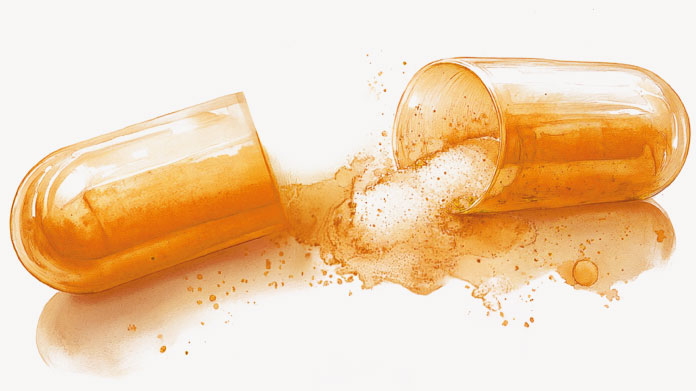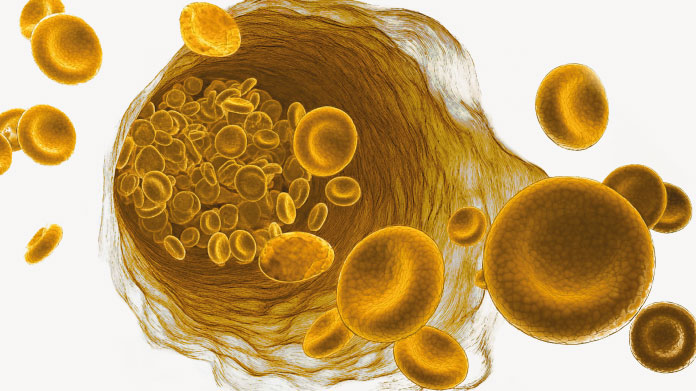
Calcium deficiency
Several studies suggest that in developed countries, 48% of men and 61% of women have an inadequate calcium intake. The recommended daily intake, according to the French Agency for Food, Environmental and Occupational Health & Safety, is 1000mg for those aged 19-23 and 950mg for those over 24. Calcium, the most abundant mineral in the human body, obviously plays a key role in maintaining healthy bones and teeth, but it is also crucial for numerous other functions such as blood clotting, muscle contractions, etc.
Furthermore, according to Inserm (the French National Institute of Health and Medical Research), by the age of around 65, 39% of women are thought to suffer from osteoporosis, which is why calcium supplements (2) are very often prescribed for women over 50 and men over 60.
Calcium-rich foods
Dairy products such as cheese, yogurt and fromage blanc are obviously all key sources of dietary calcium. But there are also significant amounts in thyme, sardines, tofu, spinach, haricot beans, mineral water, etc. You can also take a daily calcium supplement.
Vitamin D deficiency
According to France’s National Academy of Medicine (3), 80% of the French population (particularly the elderly) are deficient in vitamin D and should be taking supplements.
Vitamin D, as well as being essential to health, promotes calcium absorption in the body. It is also involved in many other functions including the muscular and immune systems.
Fatigue, muscle weakness, dry skin, bone pain and cramps are also very common signs of potential vitamin D deficiency in Western societies.
Vitamin D-rich foods
Vitamin D is found primarily in oily fish, soya and liver (calves’ liver, for example). Another way to ensure an adequate intake is to take a conveniently-dosed vitamin D3 supplement.
Iron deficiency
According to the World Health Organization, iron is among the most frequently-lacking nutrients in industrialised countries. A trace element, iron is essential for cellular respiration and transporting oxygen in the blood.
Iron deficiency has a number of potential causes including heavy periods, hence the higher rate of anaemia among non-menopausal women. Vegetarianism and veganism may also be responsible for the prevalence of iron deficiency in Western populations since iron from plant source-foods is less well-absorbed than that from animal sources.
Fatigue, hair loss, physical and intellectual impairment, lower resistance to infection, thermoregulation problems, headaches, and palpitations are all signs of iron deficiency.
Iron-rich foods
Red meat is obviously one of the best sources of iron, but it is also found in offal, shellfish, green vegetables, pulses and whole grains. As is the case for the other essential trace-elements and vitamins, iron can be taken in supplement form (such as Iron Bisglycinate) to remedy any shortfall.
Note: vitamin C
Magnesium deficiency
According to a recent study (4), 73% of men and 7% of women may be lacking in magnesium. Essential for health, this mineral salt plays a role in lipid metabolism, protein synthesis, glucose breakdown and neuromuscular transmission , as well as in many other important cellular functions due to its involvement in over 300 enzymatic processes.
Symptoms of magnesium deficiency thus include hypersensitivity, irritability, tremors, depression, a feeling of tightness in the chest, headaches, dizziness, insomnia, difficulties concentrating, cramps, muscle spasms and contractions.
Magnesium-rich foods
The most appetising sources of magnesium include cocoa, Brazil nuts and other nuts (hazelnuts, almonds, peanuts, etc), but significant amounts are also found in beans, seafood, seaweed, leafy vegetables, pulses and grains .
And again, taking a magnesium supplement is a convenient way of ensuring your body gets enough of this important mineral salt to avoid deficiency.
Zinc deficiency
A shortfall in zinc affects the body’s immune response and leads tochronic inflammation and oxidative stress. It’s thought that 30% of over-65s are lacking in zinc, and deficiency often results in depression, loss of appetite, and colds,, as well as fatigue, acne, dull, brittle hair, etc.
Zinc-rich foods
Zinc is found in many foods, primarily red meat, sesame seeds, pulses and nuts, as well as in zinc supplements, at doses formulated to meet the body’s requirements.
Vitamin B12 deficiency in vegans
Essential for healthy brain and nervous system function and blood production, vitamin B12 is mainly found in animal-source foods, which is why deficiency in B12 is common among vegans.
The best way of addressing such deficiency is to take vitamin B12 supplements, such as Methylcobalamin.
By eating a healthy, balanced, nutritionally-complete diet, and taking carefully-chosen, appropriately-dosed supplements when necessary, it’s easy to avoid deficiencies, and thus maintain the best possible health.
References
- https://www.anses.fr/fr/content/le-calcium
- Robert P. Heaney (2000) Calcium, Dairy Products and Osteoporosis, Journal of the American College of Nutrition, 19:sup2, 83S-99S, DOI: 10.1080/07315724.2000.10718088
- Rapport de l’Académie nationale de médecine. Statut vitaminique, rôle extra osseux et besoins quotidiens en vitamine D. Bull Acad Natle Med. 2012, 196, 1011.
- Etude SU.VI.MAX menée sur un échantillon de 14 000 personnes entre 1994 et 2002
59 Days
Very happy with the order and the…
Very happy with the order and the prompt team's response to an identified issue with my order.
KUQI Fatmir
66 Days
15 + years as a customer
I have been using their products for over 15 years as I find both the quality and pricing excellent.
Del Chandler
68 Days
Good quick delivery
Good quick delivery
Timothy O Shea
69 Days
Good service
Good communication following order. Product came within the time frame and was well packaged. The only confusing thing I found was in checking out. For some reason it is not clear how to do so and the current system should be improved.
Joe O Leary
78 Days
Simple and fast.
Simple and fast.
Nina
78 Days
Great product was definitely what is…
Great product was definitely what is says and arrived on without issue
customer
84 Days
I love reading those product facts on…
I love reading those product facts on Supersmart.com. Effective health products making permanent changes to my blood-work results and testes. However, I also have to order capsules from other websites.
NORDGULEN Olav
87 Days
Great products
Great products Very easy to choose, to order… and to get at home
Federica mastrojanni
90 Days
Service rapide et bons produits
Service rapide et bons produits
customer
91 Days
Good products and fast delivery
Good products and fast delivery
Trusted
96 Days
Does what it says on the can
I believe in this product Made to highest standard The ordering process is straightforward Delivery time prompt Excellent product, excellent service Happy customer ❤️
Sheba Kelleher
101 Days
Excellents produits
Excellents produits. Rien à dire si ce n'est qu'ils sont très chèrs.
MJS_France
103 Days
Very good supplement
Very good supplement
Glaveash
104 Days
Supersmart supplements are really…effective
Supersmart supplements are really effective and have helped me and family members and friends to improve their health including some of us with severe health problems including some with no existing medical treatment.
Anne Georget
105 Days
SuperBig Supersmart
SuperBig Supersmart
Pierre



